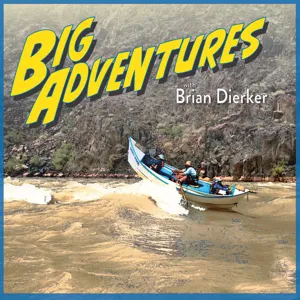#83: If Trees Could Talk with Dr. Grant Harley

There are living trees in the United States that are approaching 5000 years old - and I’m not talking about trees that clone (I’m looking at you, aspen). Imagine if those trees could talk! Well, in a way, they can!
That’s where dendrochronologists like Dr. Grant Harley come in.
And it turns out that the science of dendrochronology is so much more far reaching than I ever imagined. Dr. Harley tells us how he reads the trees, inferring things like climate patterns, wildfire history, and community ecology. But this unique science even allows for dating artifacts, such as coffins, cabins, shipwrecks, and other wooden objects.
We cover all of this and more, including how tree rings are assessed without killing the tree. And how technology is used to make these assessments. Dr. Harley also answers why trees in the western US make better specimens for assessing historical climate. And just what is the medieval climate anomaly and why is it important to us today?
I feel like Dr. Harley could make a series of podcasts out of dendrochronology, the history it tells us, and the mysteries it helps us solve. Find Dr. Harley on Twitter @dendrotrog.
FULL SHOW NOTES
Links To Topics Discussed
Note: links to books are affiliate links
Fundamentals of Tree Ring Research by James Speer
The Fellowship of the Tree Rings RadioLab episode that Dr. Harley appeared on
North American Dendroecological Fieldweek
Thanks for Michelle Balderston for editing help this week
.
Music: Spellbound by Brian Holtz Music
License (CC BY 4.0): https://filmmusic.io/standard-license
Artist website: https://brianholtzmusic.com
Support Us On Patreon!
.
Get inspired with the Jumpstart Nature Podcast - entertaining and immersive, it's the nature podcast we all need.
Check past Nature's Archive episodes for amazing guests such as Doug Tallamy, Elaine Ingham, and Gabe Brown. And topics ranging from bird migration to fungi to frogs and bats!



